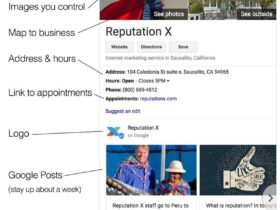Did you know that 75% of B2B buyers research at least three advocacy sources before purchasing? As Gartner’s research shows, endorsements play a vital part in consumer decision-making. Brand influence is mainly governed by the supporters: the customers and the employees, the partners and the fans. In this article, we consider brand advocacy and how promotion must be effective and extended to various groups of customers. We also focus on the fact that optimal brand advocacy is necessary for the further effective development of the company.
What is Brand Advocacy
Brand advocacy can be described as the positive backing given to a brand by consumers, employees, or other stakeholders. Thus, it is a brand leadership project that aims to identify, recruit, and mobilize stakeholders who have a positive attitude toward a brand.
It targets pleased consumers and turns them into salesmen of the business since they would recommend other people to patronize it. Branding advocacy can be defined as the attempt to utilize word of mouth, new media, and other forms of communication to enhance the reputation and reach of a company.
How to build brand advocacy
Building a successful brand advocacy campaign requires careful planning, engagement techniques, and continual efforts to cultivate connections with advocates. Here’s a step-by-step method for establishing a successful brand advocacy program:
-
Step 1: Know Your Customer
To begin your brand advocacy program, identify what makes your brand unique to your customers. It may be your superior products, exceptional services, or the personal touch that distinguishes you. Listen to what your consumers say, both positive and negative, and utilize their comments to learn what they like about your brand.
-
Step 2: Build Relationships
Developing deep, personal ties with your consumers is like sowing the seeds for a thriving garden of brand evangelists. Experts believe that clients who are suggested by other customers are more loyal and spend more money. So, how do you create these connections? Engage with your consumers on social media, reply to their feedback, and demonstrate that you are more than simply a corporation looking to make a sale. If you run a call center, use several ways to reduce AHT, such as using a knowledge base, automating FAQs, or enhancing IVR. Be a friend, not a seller.
-
Step 3: Surprise and Delight
People enjoy surprises, and your customers are no exception. To create unforgettable moments, provide exceptional customer service. Surprise your clients with a unique discount, a VIP experience, or a simple personalized thank-you card. This will encourage them to return and share their wonderful experiences with others.
-
Step 4: Make Your Customers Heard
Make it simple for your clients to spread the news about your brand. Include sharing options in your material so that customers can simply inform their friends and family about their favorite goods. Share the excellent feedback your consumers leave on your social media sites to reach even more people. Also, remember to acknowledge and reward your best admirers for their support.
-
Step 5: Check if Your Plans Work
Monitor what’s going on to ensure that your brand advocacy initiative is on track. Who is speaking about your brand? What are they saying, and where do they say it? Use website statistics to determine when your clients are most engaged. This information will assist you in making more informed decisions and continuously enhancing your program.
Show your gratitude by awarding your most loyal customers. Create a unique rewards program to acknowledge their efforts, such as submitting reviews, attending events, or making recommendations. Make them feel like members of an elite club with varying levels of rewards, such as being highlighted on your website, receiving free brand swag, or being invited to special brand-sponsored events.
By taking these six steps, you’ll be on your way to developing a brand advocacy campaign that thrills your consumers and converts them into your business’s biggest supporters.
How to Assess Brand Advocacy?
As previously said, statistics from brand advocacy programs may reveal a lot, and you should monitor the performance of your activities frequently. Here are some measures you may use to evaluate the performance of your brand advocacy campaign.
- Program Participants: Use the reporting tool of the program you choose to keep track of program sign-ups and active users.
- Sales prospects from referrals: The solution you use to manage the brand advocacy campaign should also allow you to examine sales leads derived from advocate recommendations.
- Social sharing and engagement: Find engagement statistics on your social media accounts or through your social media management tool.
- Share of voice: You can typically see your company’s share of voice, or how your brand’s exposure compares to other rivals in the market, by using tools such as Google Ads, social networking software, or SEO tools.
- Customer satisfaction: Monitor customer reviews, survey responses, referrals, sales, and service data.
- Customer retention rate: Determine customer retention rates by comparing the number of current customers at the beginning of a given period to the number of customers after that period.
- Net Promoter Score (NPS): NPS measures the possibility that consumers will suggest your company to someone they know. You can get the answer by surveying clients on a scale of one to ten. People who score six or below are critics, those who score seven or eight are passive, and the rest are promoters. To calculate your response, subtract the ratio of critics from promoters.
Why Is Brand Advocacy Important?
Brand advocacy is highly important for a few reasons and heavily influences a firm’s development and recognition.
Firstly, it is an authentic voice promoting a brand since the advocates reveal to others how fantastic the brand is. This word-of-mouth marketing is more effective than conventional advertising because consumers will always believe their peers more than organizations.
Secondly, brand advocates can enrich customers’ loyalty, which is one reason that some consumers’ loyalty is higher than others’. Engagement affects attitudes and behaviors in that users of a brand will have multiple purchases and even recommend the brand to their friends.
Brand advocacy is not devoid of benefits in that it can generate feedback. In most cases, advocates provide useful information that can be used to enhance an organization’s products or services. Interacting with these customers reinforces their loyalty and makes them part of the company, enabling them to contribute to the generation of ideas.
Finally, the number of customer advocates has become important in today’s climate, where consumers are exposed to numerous brands. With the latter’s increasing sophistication, opinion leaders’ recommendations may become the decisive condition for defining new and loyal clientele. In this piece, brand advocacy will be shown to be not only useful but compulsory for any organization that wants to experience long-term prosperity.
Enhance Your Brand Advocacy with Loyal Customers
A good brand advocacy plan may help your firm expand and prosper. Building a network of advocates, ranging from devoted consumers to dedicated staff, may significantly increase the effect of your brand.















